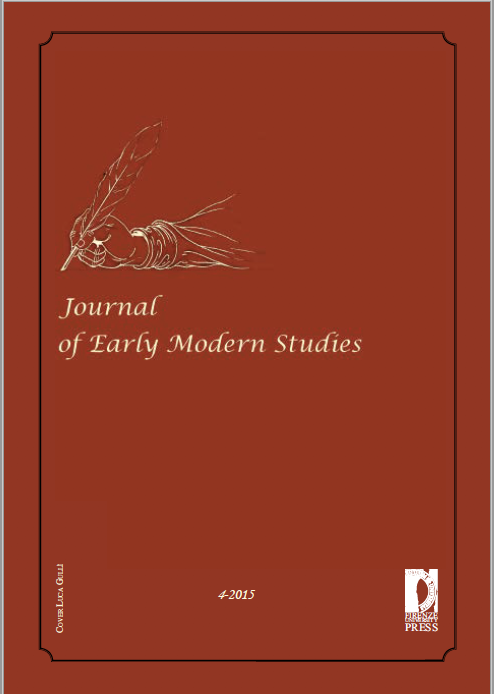Published 2015-03-02
Keywords
- Copyist,
- Household,
- Manuscript,
- Scribe,
- Servant
How to Cite
Abstract
In early modern English households, literate servants such as tutors, chaplains, stewards, secretaries, and ladies in waiting were well positioned to assist their employers in the assembly and copying of verse miscellanies, anthologies, and other literary manuscripts. Looking at several literary manuscripts, some with known servant contributions and others that suggest the participation of household retainers, the essay explores the likelihood that literate servants often performed scribal tasks above and beyond their formal job descriptions, even serving as scribe for their employers’ hobbies and leisure activities. Although copying was an arduous task, servants appear to have viewed these duties not simply as part of their job but also as gift exchanges, as appeals for promotion or patronage, and as a means by which they might gain access to manuscript literature and literary circles. Studies of early modern letter writing have called attention to many of the copy tasks of literate household servants, but the integral role of literate servants in the collection, copying, and preservation of literary manuscripts deserves much more attention.


